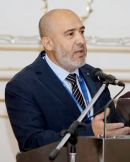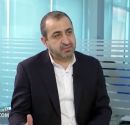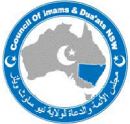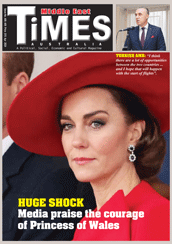| Cover |
| Kuwait’s emir embarks on landmark visit to Iran |
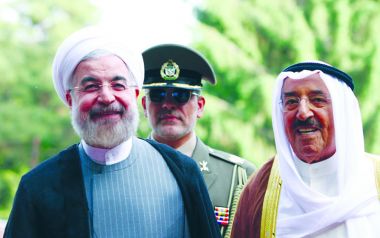 |
Kuwait’s emir embarks on landmark visit to Iran Cautious Optimism Ahead of Kuwait’s Emir Shaikh Sabah Al Ahmad Al Sabah’s Visit As Kuwait’s Emir Shaikh Sabah Al Ahmad Al Sabah made his first visit to Iran since he became Emir in 2006, cautious optimism and persisting uncertainty were the themes of the day. Relations between Kuwait and Iran have been through highs and lows for decades, driven mainly by national interests. Kuwait sees Iran as a political heavyweight with strategic importance while Tehran sees Kuwait as a reliable ally with a critical geo-strategic location between Saudi Arabia Iran and Iraq. Though there is history of cooperation and recognition between Kuwait and Iran, the situation changed in 1979 after the Iranian Revolution toppled the regime in Tehran. Kuwait was suspicious and was openly cautious about the developments even though it was one of the first countries to recognise the new regime. However since war broke out between Iran and Iraq in 1980, there have been many ups and downs in the relationship between Iran and Kuwait. By 2003, the relationship seemed to be back on a very cooperative level when three economic agreements were signed. However, despite official statements about the “resounding success” of the visit, concrete results did not really follow. Now, one decade later, with the growing tension in the region plagued by increasing levels of sectarianism and religious militarism, there is hope in the region that the high-level contacts between Kuwait City and Tehran would usher in a new era of stability and security. Top Iran leader urges closer ties with Gulf - Khamenei warns Syria rebel supporters Iran’s top leader called for better ties with Gulf nations during a rare visit by the HH the Amir of Kuwait, intensifying a push by Tehran to mend relations with the US-allied countries on the other side of the Arabian Gulf. Sheikh Sabah Al-Ahmad Al-Sabah’s visit, follows visits by Iran’s foreign minister to Kuwait and other Gulf states in recent months. Moderate Iranian President Hassan Rouhani vowed to improve relations with Arab countries after he came to power in August. Iranian supreme leader Ayatollah Ali Khamenei, who has the final say on all state matters, sounded a conciliatory note on the second day of the Kuwaiti leader’s visit. Iranian state TV quoted him as saying that regional security “depends on good relations among all countries of the region”, and that differences between them will only benefit their common enemies. He expressed hope for “a new chapter” of economic relations between Iran and Kuwait. Trade between the two stands at about $220 million, according to state television. Kuwait’s first deputy premier and Foreign Minister Sheikh Sabah Al-Khalid Al-Sabah, described earlier talks between HH the Amir and Rouhani as “constructive” and said it was important for countries in the region to have normal relations with Iran, according to the official Kuwait News Agency. The Amir is the second Gulf leader to visit Iran since Rouhani’s election last summer. Sultan Qaboos bin Said, the ruler of Oman – which has long sought to balance relations with both Iran and the West – visited in August. Rouhani reciprocated the gesture earlier this year. Iranian officials have invited other Arab leaders to visit as well. Saudi Arabia last month extended an offer for Iranian Foreign Minister Mohammad Javad Zarif to visit the kingdom, though no trip has been confirmed. Khamenei warned regional countries of the “high price” they would eventually pay for supporting extremist Sunni Muslim groups fighting Syria. “Unfortunately, some regional countries do not take heed of the danger of takfiri groups which will threaten them in future and they are still backing these groups,” the leader’s website khamenei.ir reported. Takfiri is a synonymous term Iranian officials use for Sunni extremists. “Some of the regional countries are backing the Takfiri groups and supporting their massacres and crimes in Syria,” said Khamenei. “Eventually these countries will be forced to eradicate these extremists, with a high price,” Khamenei added. Cooperation and Closer ties were the focus of the Visit Emir Shaikh Sabah al Ahmad al Sabah’s landmark visit therefore focussed on ties between Iran and Gulf states. It was Shaikh Sabah’s first visit to Tehran as head of state, taking with him, a high level delegation of the ministers of foreign affairs, oil, finance, commerce and industry in addition to senior officials. The visit also focused on regional issues, including Iran’s military involvement in Syria, the situation in Iraq and Egypt and the Middle East peace process. The visit is a result of a thaw in ties between Tehran and six-nation Gulf Cooperation Council (GCC) since the election of Iran’s moderate President Hassan Rouhani in June 2013. Rouhani escorted Sheikh Sabah to review an Iranian honor guard upon the Amir’s arrival in Tehran. In greeting the Amir, Rouhani, said the trip would mark “a decisive turning point” and that the two states had “close views on political, regional and international issues”. The visit also focussed on controversial regional issues, including Iran’s military involvement in Syria, the situation in Iraq and Egypt, and the Middle East peace process, Kuwaiti officials said. Relations between Iran and the Gulf, namely signs of rapprochement between regional power brokers Saudi Arabia and Iran, were also discussed during the visit, Kuwaiti foreign ministry undersecretary Khaled Al-Jarallah told Al-Hayat newspaper. He said Kuwait, which currently holds the rotating presidency of the GCC – which also includes Bahrain, Oman, Qatar, Saudi Arabia and the United Arab Emirates (UAE) – has balanced links with Tehran and is willing to mediate between Riyadh and Tehran. Sheikh Sabah, a former Kuwaiti foreign minister, is described by analysts as one of the region’s most active diplomats, often acting as a mediator. Several bilateral cooperative agreements were signed, including security and air service cooperation deals, a customs cooperation agreement, a memo of understanding pertinent to youth and sports, a memo of understanding in the tourist field, and a memo of understanding in environmental protection and sustainable development. Analysts agree that Iran must Change Iran must prove through actions that it is willing to make key policy changes to mend fences with Gulf Arabs, analysts said. The visit by Shaikh Sabah is an opportunity for Tehran to turn over a new leaf in Gulf ties, they said. “It’s a significant visit and a very important opportunity to show if Iran really wants to develop its ties with the Gulf and open a new page with them,” said Riad Kahwaji, head of the Dubai-based Institute for Near East and Gulf Military Analysis. “So far, Tehran’s policies haven’t changed ... it bolstered its military involvement in Syria and dispatched troops to support the regime against the people. It has also increased its interference in Iraq, Lebanon and Yemen. “Gulf states, particularly Saudi Arabia, won’t accept Iran’s control of any Arab country for improving ties,” said Kahwaji. Kuwait, whose native population is one-third Shiite, has balanced ties with Tehran, even reportedly acting as a mediator to break the deadlock in the Islamic Republic’s relations with regional rival Riyadh. For years, Iran’s relations with the Gulf states have been frosty but Tehran launched a diplomatic offensive aimed at easing these tensions since the election of self-declared moderate Hassan Rouhani as president in June 2013. ‘Hand of fraternity’ In March, Rouhani visited Oman, which maintained strong links with Iran and has mediated between the West and Tehran over its nuclear program, and offered “a hand of fraternity to all the countries of the region”. Ties between Gulf countries and Iran were further strained by Tehran’s backing of Syrian President Bashar Al Assad’s regime in its battle against rebels supported by the Arab monarchies. “Without a real change in Iran’s policy on the ground, I don’t think there will be any breakthrough in relations with Gulf Arab states. Nothing of this has happened,” Kahwaji said. Anwar Eshki, head of the Middle East Centre for Strategic Studies, said Iran appears to be serious in its efforts to mend ties but also stressed deeds are needed, “Rapprochement is possible now, and I think Iran is willing because its economy is deteriorating and popular demands are rising ... Iran is currently reconsidering its policies,” he said. |
 |
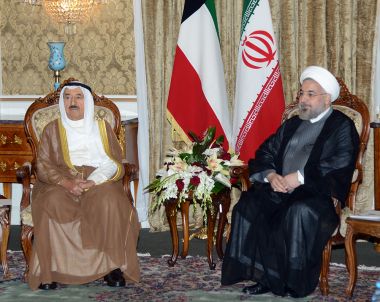 |
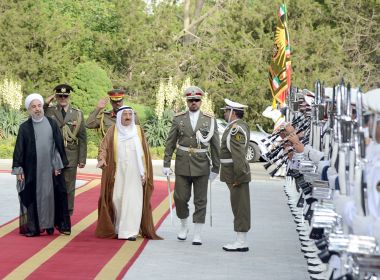 |
- Pope Hails ‘Courage’ of Israeli, Palestinian Presidents
- Growing with the business means another addition to the family
- INTERVIEW WITH - The Hon Andrew Robb, Minister for Trade and Investment



